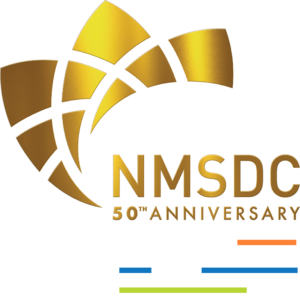As the construction industry continues to rapidly grow and adopt new technological techniques, remote estimators have proved essential for construction businesses. Innovations such as digital takeoff and estimating software, building information modelling, and cloud-based platforms have been shown to support contractors, estimators, and project managers in accessing and sharing project data anytime. As project complexities increase, construction business owners are discovering that the traditional ways of handling estimates by relying solely on expensive consultants are redundant.
Though not as popular as other remote roles like virtual assistant jobs, remote estimator roles could be the solution for employers in construction to break even while improving performance and cutting down on costs, both on their projects and human resources. In this article, we explore the role that remote project estimators play in construction businesses and how employers in this industry can improve their businesses by hiring them.
Who Are Remote Estimators?
Remote estimators are skilled construction professionals who provide project cost estimates and quantity takeoffs from a remote location, typically working as independent contractors or through specialized firms. They understand the ins and outs of construction projects, with the ability to accurately provide estimates on material costs, labor requirements, and the countless variables that can make or break a bid.
A remote construction estimator is not just a beginner professional; they possess prior years of experience either as project managers, construction supervisors, or consultants, and have the practical knowledge needed to spot potential implications.
What Remote Estimators Do for Construction Businesses
1. Cost estimation
At the core of their expertise, remote estimators provide precise cost estimation services that form the heart of a successful construction project. It is not just calculations on basic materials to be used; they conduct a comprehensive pricing analysis that includes direct costs, indirect expenses, overheads, and profit margins. Construction estimators maintain databases of current material costs, labor rates, and equipment expenses and keep them updated, becoming essential for construction companies that are keen on managing expenditures for their projects. The cost estimation process entails analyzing historical data to identify patterns and benchmarking accuracy in pricing, then providing cost breakdowns by trade, phase, or building system, giving construction managers the granular information needed for effective project planning and execution.
2. Quantity takeoffs
Takeoffs in construction entail calculating material, labor, and equipment quantities needed for a specific project. Quantity takeoffs, typically, are detailed lists of everything needed to complete a construction project. Remote estimators mostly utilize software to accurately calculate the quantity of each material required, which helps to prevent overordering and waste. Although the aid of software is utilized, this process requires deep construction knowledge for remote estimators to understand how different building systems interact, how to spot potential overlapping requirements, and how to account for waste factors and installation complexities. Modern construction estimators integrate digital takeoff software with Building Information Modeling (BIM) systems for accuracy.
3. Value engineering services
With their experience in conducting and managing project cost estimates, estimators serve as strategic partners in optimizing project value. Apart from calculating costs, they also actively identify opportunities for value engineering that can cut down expenses while maintaining or improving the project quality and functionality. Value engineering services that estimators can support project managers with include analyzing alternative construction methods, design modifications, and materials. They can suggest substitutions, recommend sequencing changes, or identify areas where specifications exceed actual requirements without adding value, in the quest to save costs and improve efficiency.
4. Bid preparation and documentation
Estimators often go beyond calculating costs and handle the entire bid preparation process, changing complex estimates into understandable professional proposals. The bids entail cost breakdowns, project schedules, scope clarifications, and all documentation that is needed in the bidding process. They organize subcontractor quotes, ensuring compliance with requirements, present alternative pricing scenarios, and compose executive summaries that make the bids competitive.
5. Budget management
Cost estimation and budget management go hand in hand. Estimators provide ongoing budget management services that extend well beyond initial project estimates. They help establish realistic project budgets based on accurate cost data, create detailed budget breakdowns that facilitate effective cost control, and provide regular budget monitoring and reporting throughout project execution. They actively support in creating contingency recommendations, creating cash flow projections, and establishing cost control systems that enable early identification of budget variances.
6. Risk assessment
Professional remote estimators bring systematic risk assessment expertise that helps identify potential cost impacts before they occur. They analyze project documents, site conditions, schedule requirements, and market factors to identify risks that could affect project costs or timelines. For estimators, risk assessment majorly involves evaluating constructability issues, identifying potential scope gaps or conflicting areas, assessing market volatility impact on material costs, and subcontractor availability and capacity. They quantify risk implications and recommend appropriate contingency plans for various risk categories.
7. Championing construction services
Remote estimators understand the complexities of construction work and can articulate the skill, expertise, and value that construction professionals bring to projects. They therefore serve as advocates and champions for construction services, helping businesses communicate their value more effectively. They understand what sets successful construction companies apart and help articulate these differences in ways that relate to potential clients and decision makers.
Why Remote Estimators Are Becoming Essential for Construction Businesses
The benefits of hiring remotely evidently surpass traditional hiring methods. From saving costs in salaries and overhead costs, gaining access to global talent, the ability to easily scale with little to no limitation in operating hours, to flexibility in projects and faster delivery, the remote hiring industry has proven reliable to employers. However, why are remote estimators essential for construction businesses, apart from the general remote hiring benefits?
1. Increased Competitive pressure
Construction companies are operating in an increasingly competitive business environment where the margin for errors in bidding has disappeared. More subcontractors are competing for the same projects, clients are more heightened to price, leaving razor-thin profit margins that leave no room for estimating mistakes. Remote estimators help construction businesses navigate this competitive pressure by providing highly accurate estimates that protect margins while keeping bids competitive.
2. Technology Integration in Construction
Proficiency in technological tools such as BIM, cloud-based project management platforms, AI-assisted estimating, and mobile construction applications has become essential rather than optional. Investing in such systems for construction business owners carries a significant financial weight, hence the option to engage remote estimating consultants who specialize in this kind of work and possess the necessary software to perform the tasks while positioning their businesses as the best in the market. technology advantage also includes access to comprehensive databases of current material costs, labor rates, and market trends that are updated more frequently and comprehensively than most individual construction companies can maintain. These databases, combined with advanced analytics capabilities, enable more accurate and reliable cost projections.
3. Changing project needs
Customers are seeking more cost-efficient solutions for their construction. Engaging a remote estimator ensures that every coin is accounted for, wastage is mitigated, and the client gets alternative ways they implement the project. Unlike before, projects are more complex with higher performance standards, stricter environmental requirements, and more sophisticated client requirements. These evolving requirements create a challenge for construction companies trying to maintain estimating expertise across projects, hence the rising need for engaging remote construction estimators.
4. Improved accuracy and quality
The most compelling reason for construction employers to embrace virtual estimators is the need to deliver quality work and ensure accuracy in estimating and delivery. Estimators deliver more accurate estimates as they have specialized in that area. While in-house staff may handle multiple tasks such as project management, client relations, and field coordination, remote estimators focus exclusively on what they do best: creating accurate, detailed estimates.
Checklist For What To Look for in a Virtual Estimator
Hiring the right remote estimator is crucial in realizing the benefits it offers to a construction company. Here is a checklist for hiring the right construction estimator
- Industry experience and specialization are mandatory. Look for remote estimators with experience in your specific area of specialization, not just cumulative years of experience.
- Technical proficiency and software knowledge are a prerequisite for success as modern construction is tech-centered.
- Soft skills are as important as technical skills, including collaboration skills, communication, and critical thinking.
Stay Competitive by Hiring with Remote Raven
If you are a construction employer who is still considering hiring a remote estimator, this is your sign to get started. The key to hiring right lies in carefully selecting candidates who align with your business scope, understand your quality standards, and have your business goals at heart. At Remote Raven, we have mastered the remote recruitment process that produces like-minded professionals. Get in touch with us today and begin your journey to business success.





